Predictive Maintenance for Service Business Models and Extended Product Life
The project focuses on economic and environmental sustainability and increased industrial competitiveness.
2017 – 2018
Project time: 2017 – 2018
Budget: 715 000 kr
Funding: SIP Produktion2030
The aim of the project is to develop and optimize a sustainable process for anodization of aluminium follow ed by impregnation of the anodic coatings using nanomaterials to produce innovative, multifunctional surfaces. The initial approach is to develop corrosion inhibitory nanomaterials to enable corrosion protection w ith added values and additional material related functionalities, such as ice-resistance.
A positive outcome of the project can result in a new , sustainable surface treatment of aluminum reducing the use of chromates in the process and the environmental impact of the products. A tailored impregnation w ith a resulting enhancement in corrosion protection and multifunctionality w ould also reduce the need of several time-consuming steps in production and can improve the personnel safety by influencing companies globally to reduce chromates in their production.
Optimized porosity of a coating produced via an environmental friendly anodization w ill be studied in order to achieve ice-phobic surfaces. Nanomaterials impregnation of the pores enables further improvement in corrosion protection as w ell as ice-phobicity while introducing novel, nanomaterial dependent functionalities. Impregnation w ill be performed using dip-coating and nFOG technique. Efficient, sustainable and low cost nanomaterial coatings w ill be used.
The project focuses on economic and environmental sustainability and increased industrial competitiveness.
2017 – 2018
With globalization and other megatrends as demographic changes and climate change, more knowledge is needed regarding production in an international perspective. PADOK Study Visit in India 2016 have given an increased knowledge regarding how production is conducted in India, some of the challenges producing companies in that region is facing and how Swedish companies interested in investing in production in India could act to establish themselves in the region.
2016 – 2016
RemProLife aims at improving the use of life-cycle information to achieve more efficient remanufacturing from economic and ecological perpectives.
2013 – 2016
2017 – 2020
Tooling constitutes a significant part in the economical investment of the hot stamping process. Significant benefits in production economy and environmental benefits can be attained by improving the tribological performance in hot forming operations of automotive components. The main idea of this project is to create tailored tool surfaces on dies made from cheaper and easier to manufacture tool steel for the hot stamping of ultra-high strength steels.
2015 – 2018
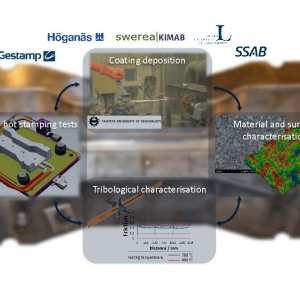
2015 – 2016
2013 – 2017
2017 – 2018
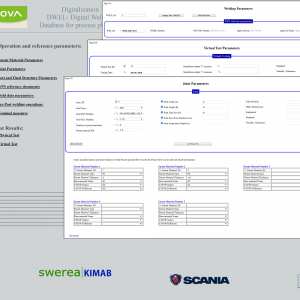
2015 – 2015
2016 – 2018
2014 – 2017
2014 – 2014
2017 – 2018
2016 – 2017
2016 – 2016
2016 – 2016
2015 – 2016
2014 – 2016
2014 – 2017

2015 – 2016
2013 – 2017
2017 – 2018
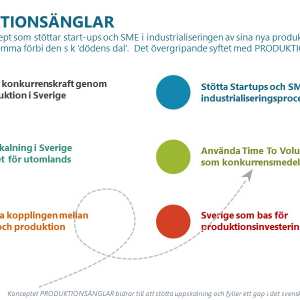
SeeCut focuses on cost-efficient production systems for secure collection, analysis, visualization, storage and sharing of production data. The project addresses the integration of new signals and sensors. For advanced products, like jet engine components, collecting data during manufacturing and usage is essential for quality assurance and remanufacturing. The project goals are to identify key technical requirements related to production data for use in digitalized value chains, define means to ease the run-time integration of new signals and data streams from manufacturing machinery and sensors, and define how to securely and cost-efficiently share data through the value chains in circular production.
2019 – 2019
2015 – 2016
2013 – 2016

2017 – 2018
2014 – 2017
2015 – 2016
2015 – 2016
Increased sustainability and cost effectiveness through improved strategic decision-making in production issues based on new metrics system for production and development.
2015 – 2017
2017 – 2018
2017 – 2018
2014 – 2017
2017 – 2021
2017 – 2019
2015 – 2016
2015 – 2016
2017 – 2020
2015 – 2015
2017 – 2018
2016 – 2016
2014 – 2018
2015 – 2016
2017 – 2018
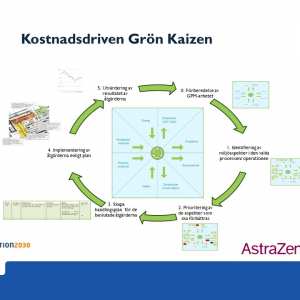
2016 – 2019
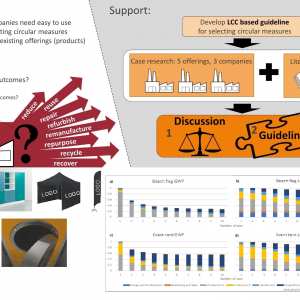
2014 – 2017
2015 – 2017
2013 – 2016
Every manufacturing company measure and control production performance with a system of KPIs. The aim of the SMART-PM project is to investigate and demonstrate new ways of collecting data, transforming data to information and introducing new decision tools based on valid information and economic models of the production systems.
2018 – 2020
2016 – 2018
Reduced lead times and improved performance for tooling through innovative manufacturing and assembly strategies as well as optimised design enabled by use of additive manufacturing (AM).
2016 – 2018
2016 – 2016
2015 – 2018
2015 – 2016
Development of a thermo-chemical test bed and implemenation of results for chosen processes and applications
2019 – 2022
2016 – 2017
The SAPPA project is about innovative cloud-based predictive and preventive maintenance systems, improving availability of products and production systems.
2014 – 2016
2015 – 2016
2014 – 2017